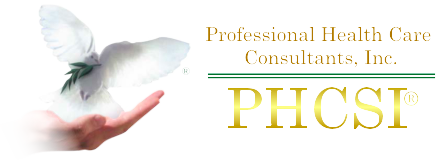Fore more inquiries, please call
- 888-534-8082 / 714-554-0878 / 949-681-8383
Fore more inquiries, please call
 Before treating constipation, its cause should be known. Sometimes cancers or other tumors in the intestinal wall or outside it, or adhesions, strictures or displacements of the bowel, bring on constipation because of partial obstruction. To detect such conditions requires medical training. The bowel itself may not be at fault; but improper action of the liver, gallbladder, or endocrine glands may result in sluggish intestinal action. Reflexes from a diseased rectum may affect the bowel higher up. All such conditions require careful study by a physician.
Before treating constipation, its cause should be known. Sometimes cancers or other tumors in the intestinal wall or outside it, or adhesions, strictures or displacements of the bowel, bring on constipation because of partial obstruction. To detect such conditions requires medical training. The bowel itself may not be at fault; but improper action of the liver, gallbladder, or endocrine glands may result in sluggish intestinal action. Reflexes from a diseased rectum may affect the bowel higher up. All such conditions require careful study by a physician.
A common cause of constipation is insufficient bulk in the diet. When a person eats milk, cream, butter, eggs, flesh food, refined cereals, and starchy vegetables, nearly all his food is digested and absorbed, leaving little residue; but if he eats freely of fruits and green vegetables, a large residue of cellulose remains undigested and unabsorbed , which helps make the bowels act normally.
The mild acids in fruits stimulate the production of digestive juices. They also induce an antiseptic action in the digestive tract and greatly assist in reducing fermentation. They stimulate the bowels to force the food onward and downward, and are nature’s wholesome laxatives.
Neglect to answer the call of nature is a common cause of constipation. Normally, when the fecal mass comes in contact with the mucous membrane lining the rectum, a message signaling the need for evacuation is sent over the nerves to the brain. Habitual failure to give heed to such message ends in obstinate constipation. Among school children, and some who work in offices or other public places, the call to evacuation is frequently put off. Constipation due to emotional or nervous tension is also common.
In the absence of a natural call to evacuate the bowels, it is important to go to the bathroom at a regular, definite time anyway and to attempt a bowel movement. The best time is within an hour after breakfast. The taking of food into an empty stomach constitutes a powerful stimulant to peristaltic action, and the peristalsis which begins in the stomach spreads downward through the digestive tract. After eating, therefore, is the rational time for an effort at evacuation.
 Fecal matter is collected slowly in the descending colon as it is delivered to that portion of the bowel by the upper portions. The lower part of the descending colon lies against the psoas muscle, which muscle contracts at each step one takes in walking or running. The action of this muscle, therefore, is stimulating to the bowel, especially when it is full. Exercise that brings this muscle into activity, therefore is a useful part of the treatment for constipation.
Fecal matter is collected slowly in the descending colon as it is delivered to that portion of the bowel by the upper portions. The lower part of the descending colon lies against the psoas muscle, which muscle contracts at each step one takes in walking or running. The action of this muscle, therefore, is stimulating to the bowel, especially when it is full. Exercise that brings this muscle into activity, therefore is a useful part of the treatment for constipation.
If their bowels do not move exactly as they think they should, many people resort to cathartics. Some take a cathartic every 10 days or two weeks, whether they are constipated or not. Many cathartics act by irritating the bowel. Repeated irritation sets up inflammation to the intestinal walls and causes them to contract so firmly that the fecal mass has difficulty passing. Hence what many people consider an effective treatment for constipation may only make the condition worse.
The enema habit is also bad. Enemas wash away normal intestinal secretions an d irritate the bowel. Plain water is a bowel irritant. Whenever an enema must be taken to clean out the large bowel, a heaping teaspoonful of common salt should be added to each quart of water used. We’ll find out more on how to effectively handle constipation on the next article.
This information was taken from the Modern Medical Guide.

Professional Health Care Consultants, Inc., also known as Professional Health Care Services, is a family-owned caregiver referral and consulting business. We specialize in managing and developing small businesses in the Home-Care Industry for non-medical, custodial and around-the-clock care. We offer caregivers, families and their loved ones all different services and several options that are affordable for them.
PHCSI and “Your Loved Ones are Our Loved Ones” are Registered Trademarks assigned to Professional Health Care Consultants, Inc.
COPYRIGHTS © 2020 Professional Health Care Services. All Rights Reserved.